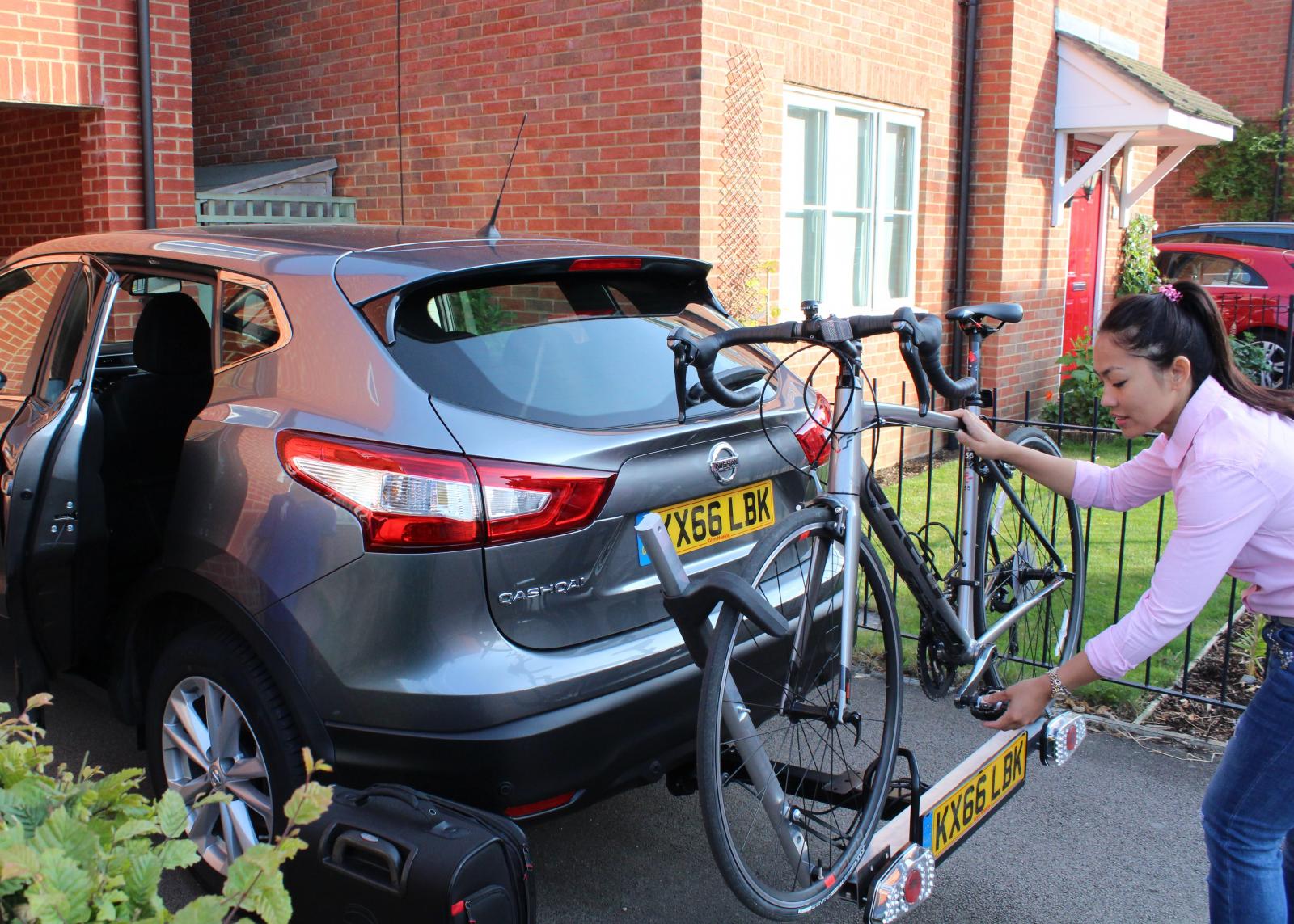
The manufacturer of an innovative vehicle bike carrier drew on the rapid prototyping and 3D printing capabilities of Proto Labs to bring the design to the point where it was ready for manufacture.
The growing popularity of cycling has led to an increased demand for vehicle bike carriers so people can transport their bikes wherever they go. However, identifying a carrier suitable for a specific model of car and bicycle is not always as easy as you may think. The problem, according to design engineer Craig Broadbent, founder of Auxtail, is that ‘traditional’ methods of fixing a bike and carrier to a car are not ideal – far from it in fact. Craig believed that a new way had to be found - not just for the practicalities of usability, but also to transport bikes safely for all road users. Recognising this as a business opportunity, Craig established Auxtail in May 2016 to develop a more secure and effective bike carrier solution. The result: EasyRide2.
In place of tow bar or tailgate/boot mount, EasyRide2 is connected to a fitting attached to the vehicle’s hidden, but immensely strong bumper beam. This means the carrier can support more weight than the traditional tow bar approach, is also lighter and less costly to produce.
Having completed the design and specification for the EasyRide2’s structure, the challenge for Auxtail moved on to how to secure bikes to the carrier. In order to protect the cycle frame, the decision was made to use wheels and tyres as the anchor points. A more exacting design process with a tyre grip combining ratchet handle and release facility, EasyRide2 also had to accommodate different sizes of wheels and tyres. Given the essential safety considerations, Auxtail determined that the design would require the completion of a diligently managed prototype programme. Only then, with a fully tested product, could injection moulding tooling and manufacturing commence.
Auxtail designed the tyre grip using CAD and Finite Element Analysis (FEA) tools and reached the stage where prototyping could start for the three constituent components. Craig said: “Although we looked at other suppliers, we were impressed with what Proto Labs’ could offer us - I knew the company’s capabilities from former connections. Validated by a factory visit, Proto Labs’ expertise and track record for rapid prototyping and 3D printing in the automotive sector made them the obvious partner of choice. Moreover, their interactive quotation system with in-built interactive, design feedback, reassured us that we could keep the project development phase on track.”
The company was able to define the material, process requirements and delivery timeframe – feeding the CAD models directly to Proto Labs online. Also, the request of Auxtail, the two companies exchanged ideas to refine the product prior to final manufacturing decisions.
“We knew that in addition to carrying out simulation tests, we would have to test the prototype ‘in the field’. To make this work successfully and to give us the most accurate outcome, it was important for the EasyRide2 prototype to reflect production level qualities as closely as possible. In the event, Proto Labs produced a product with a 90% match in terms of material qualities. For us this was an excellent outcome to take us forward,” said Craig.
Craig and his team, Auxtail took the prototype EasyRide2 to the Millbrook Proving Ground for durability testing. Put through its paces on difficult and demanding surfaces, the product came through with flying colours. With this stage completed satisfactorily, Auxtail was able to move to the manufacturing and injection moulding preparations with confidence.
Auxtail is preparing to launch EasyRide2 to the market in 2017.